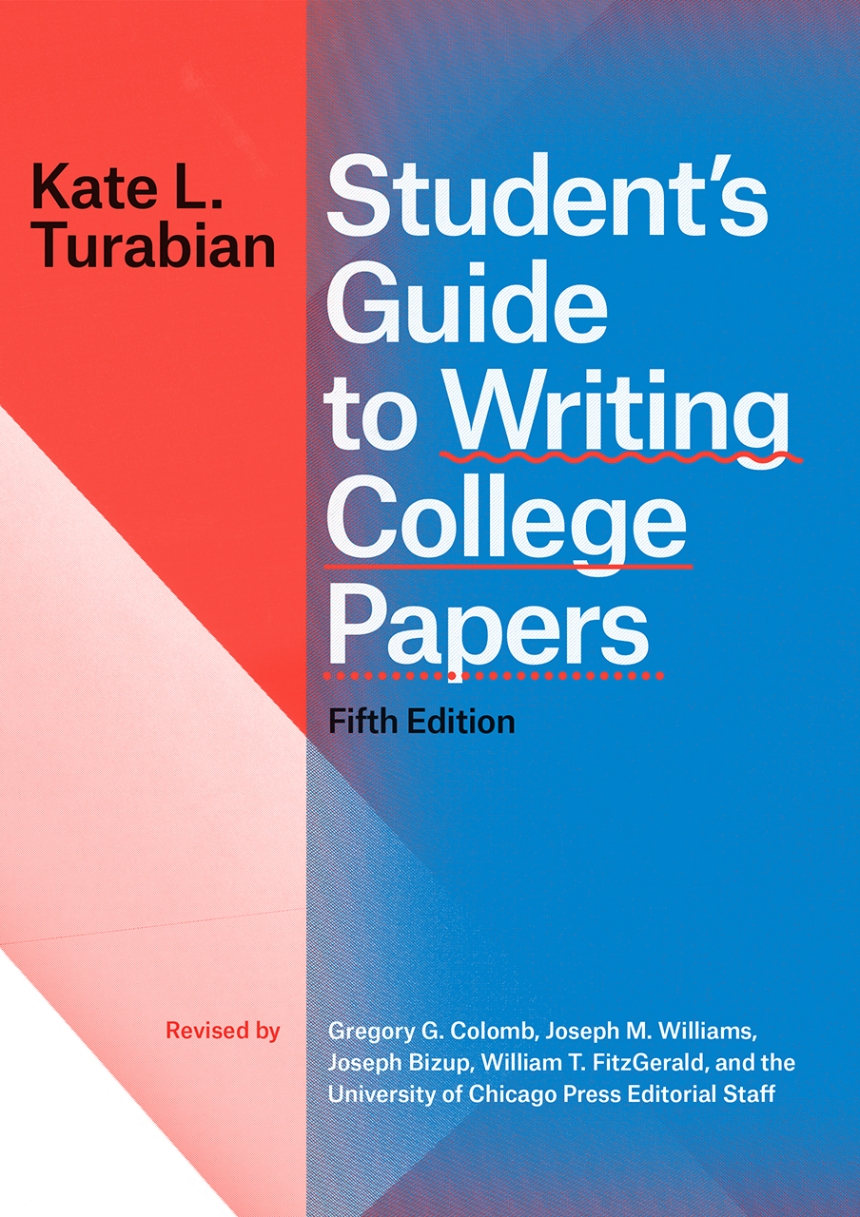Student’s Guide to Writing College Papers, Fifth Edition
Fifth Edition
9780226430263
9780226494562
9780226430430
Student’s Guide to Writing College Papers, Fifth Edition
Fifth Edition
Students of all levels need to know how to write a well-reasoned, coherent research paper—and for decades Kate L. Turabian’s Student’s Guide to Writing College Papers has helped them to develop this critical skill. For its fifth edition, Chicago has reconceived and renewed this classic work for today’s generation. Addressing the same range of topics as Turabian’s A Manual for Writers of Research Papers, Theses, and Dissertations but for beginning writers and researchers, this guide introduces students to the art of formulating an effective argument, conducting high-quality research with limited resources, and writing an engaging class paper.
This new edition includes fresh examples of research topics, clarified terminology, more illustrations, and new information about using online sources and citation software. It features updated citation guidelines for Chicago, MLA, and APA styles, aligning with the latest editions of these popular style manuals. It emphasizes argument, research, and writing as extensions of activities that students already do in their everyday lives. It also includes a more expansive view of what the end product of research might be, showing that knowledge can be presented in more ways than on a printed page.
Friendly and authoritative, the fifth edition of Student’s Guide to Writing College Papers combines decades of expert advice with new revisions based on feedback from students and teachers. Time-tested and teacher-approved, this book will prepare students to be better critical thinkers and help them develop a sense of inquiry that will serve them well beyond the classroom.
This new edition includes fresh examples of research topics, clarified terminology, more illustrations, and new information about using online sources and citation software. It features updated citation guidelines for Chicago, MLA, and APA styles, aligning with the latest editions of these popular style manuals. It emphasizes argument, research, and writing as extensions of activities that students already do in their everyday lives. It also includes a more expansive view of what the end product of research might be, showing that knowledge can be presented in more ways than on a printed page.
Friendly and authoritative, the fifth edition of Student’s Guide to Writing College Papers combines decades of expert advice with new revisions based on feedback from students and teachers. Time-tested and teacher-approved, this book will prepare students to be better critical thinkers and help them develop a sense of inquiry that will serve them well beyond the classroom.
Read the introduction.
320 pages | 9 halftones, 17 line drawings, 6 tables | 6 x 9 | © 2019
